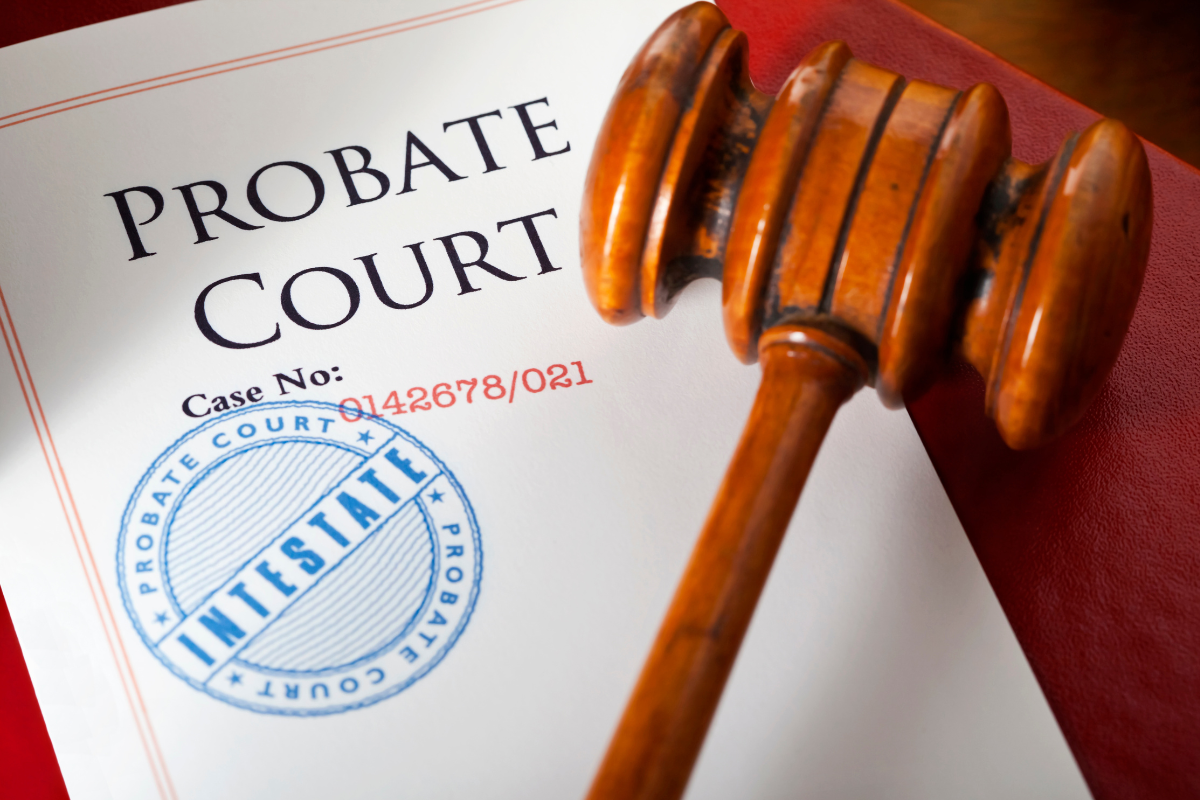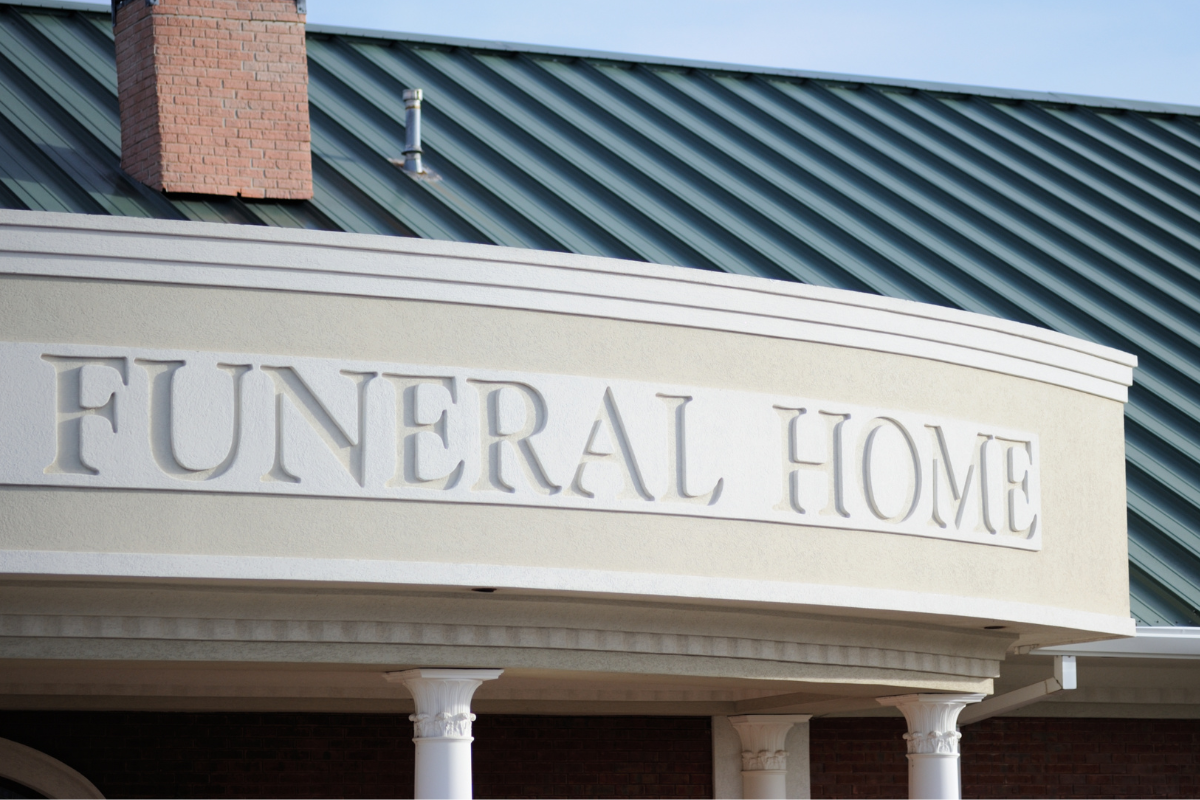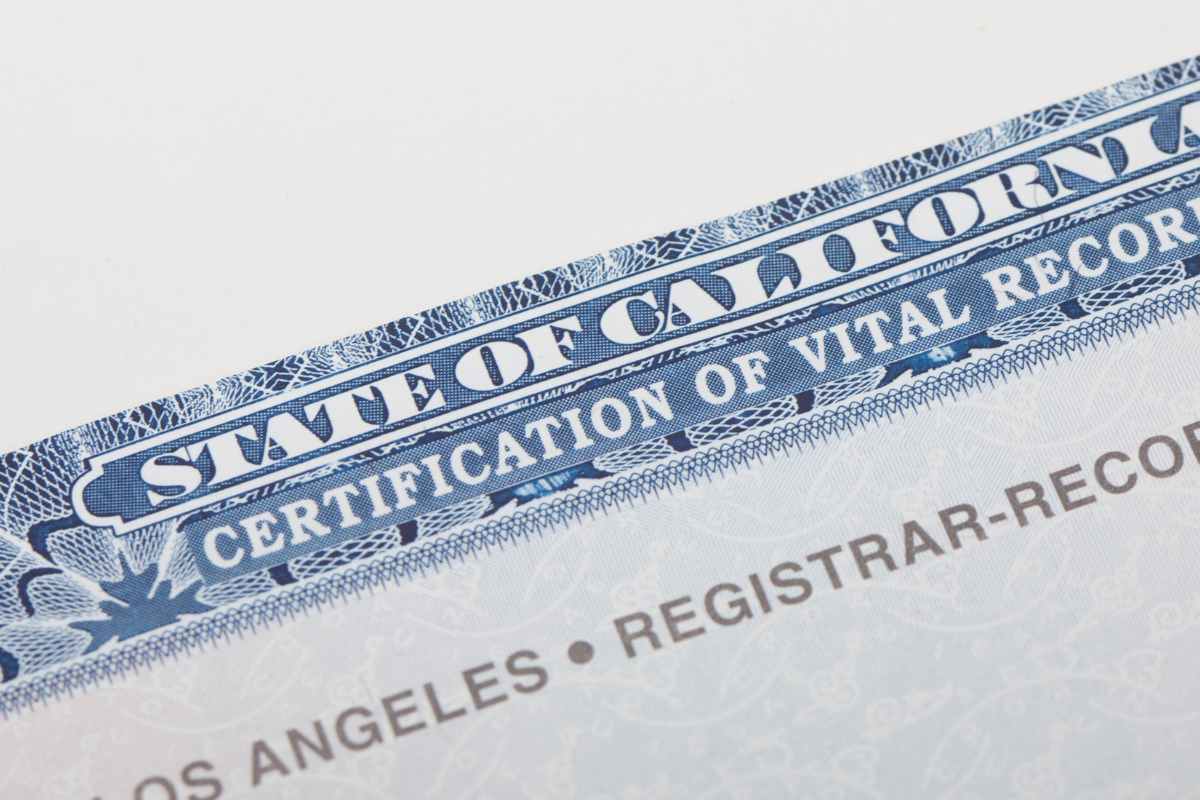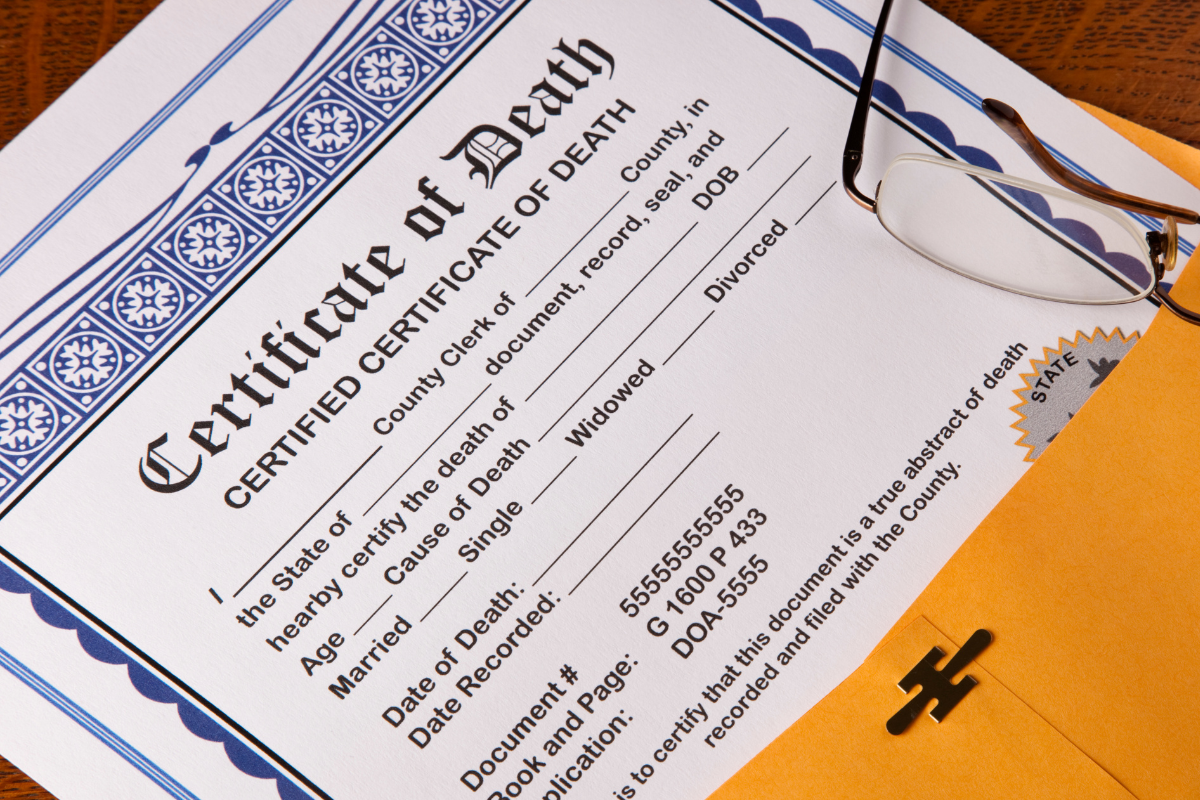Post Disclaimer: This blog reflects the author's personal experience with end-of-life matters and is provided in good faith for informational purposes only. While we aim to provide clear guidance on hard-to-find topics, this content is not legal advice and your use is at your own risk. Estate planning and end-of-life laws vary by location, so please consult your state's laws and seek guidance from a licensed attorney for your specific situation. We make no warranty about the accuracy or completeness of this information, which does not replace professional legal counsel. For more information, please see our full disclaimer.
When a loved one passes away, navigating the subsequent obligations can feel overwhelming.
Among these essential tasks, obtaining a death certificate is often a priority.
Knowing how to get a death certificate is crucial as it serves multiple functions—verifying the death legally, facilitating financial affairs, and providing emotional closure with official recognition.
Executors and family members need it to manage estate matters, file insurance claims, and handle social security benefits.
Further, secure access to this document is straightforward and typically begins with local government offices or the hospital involved.
For detailed guidance on navigating these steps with ease, our death notification checklist can be a handy resource.

What is a Death Certificate?
A death certificate is more than just a piece of paper—it's a crucial legal document required for various administrative and personal purposes.
Whether you're handling a loved one's affairs or managing personal records, understanding what a death certificate encompasses is vital.
Legal Definition and Purpose
Death certificates serve several legal purposes.
They are used to officially record a person's death, providing necessary documentation for estate settlements, insurance claims, and social benefits adjustments.
Without this document, executors and family members might find it challenging to carry out essential tasks, such as transferring titles or settling debts.
It is not just a legal formality but a necessary part of closing life’s final chapter.
For more detailed insights, you can explore how to report a death to the Social Security Administration.
This resource sheds light on processes one must undergo concerning death registrations.
Key Information Contained in a Death Certificate
A well-detailed death certificate is akin to a snapshot of a person's demise.
Here's what you typically find:
- Full Name of the Deceased: Recorded as a legal identifier.
- Date and Place of Death: Fundamental details for any legal processing.
- Cause of Death: Provides insight for medical records and public health data.
- Marital Status: Relevant for property and inheritance distribution.
- Occupation: Historical data that's sometimes significant for statistics.
- Informant's Details: The person reporting or confirming the death providing contact information.
This information ensures all legal and personal responsibilities are thoroughly managed, including estate settlements, which are further elaborated in articles like The Importance of Death Certificates for Estate Settlement.
Incorporate this essential information as part of your preparation when obtaining a death certificate from official sources.
Each piece of information serves its purpose, acting as both a legal mandate and a personal closure mechanism.
Read my article discussing the two types of death certificates, long-form and short-form, and their differences.

Who Needs a Death Certificate When Someone Dies?
The official closure of a loved one's life demands more than emotional fortitude; it necessitates the handling of various critical documents.
Key among these is the death certificate, a vital piece for numerous administrative tasks.
But who exactly needs it, and why?
Let's break it down.
Family Members and Executors
Family members and executors play a central role in managing the deceased's affairs, and securing a death certificate is a fundamental part of their responsibilities.
This document empowers them to carry out myriad tasks:
- Estate Settlement: Executors require death certificates to legally distribute assets, settle debts, and manage the deceased’s estate source.
- Accessing Financial Records: Family members may use the certificate to close bank accounts, transfer ownership of properties, or even claim pensions and benefits.
- Social Services Adjustments: It's also necessary for halting government benefits and initiating survivor benefits, which can often be a complex process.
Moreover, an executor might need multiple copies to efficiently manage these tasks.
As described in this article, having several copies can save time and reduce the hassle during this trying period.
Financial Institutions and Insurance Companies
Death certificates are crucial for financial bodies such as banks, insurance companies, and investment firms.
Here's why they matter:
- Claim Processing: Insurance companies need the certificate to process claims related to life insurance or accidental death policies. Without it, beneficiaries might face unnecessary delays.
- Finalizing Accounts: Banks and credit unions request death certificates to close accounts, transfer funds, or settle debts, sometimes even pausing automatic transactions until things are sorted.
- Loan and Mortgage Adjustments: Financial institutions may require the document to refinance, forgive, or readjust mortgages and loans.
Understanding these requirements can streamline the administrative aftermath of a loved one's passing, providing clarity and reducing stress during a deeply emotional time.
For further details on how financial institutions handle these processes, this resource offers valuable insights.
Navigating the administrative demands after a loved one's death might seem daunting, but understanding who needs a death certificate and why can help ground you in the process, making it more manageable.

How Do You Obtain a Death Certificate?
Securing a death certificate is an important step when dealing with a loved one's passing.
This legal document not only serves as a confirmation of death but also plays a significant role in settling estates, accessing financial accounts, and more.
Though the process is generally straightforward, requirements can differ based on the location and circumstances.
Let's walk through how you can obtain a death certificate.
Gather Required Documentation
Before applying for a death certificate, it's essential to have all the necessary paperwork ready. What do you need exactly?
Typically, you'll want to gather:
- Proof of Identity: A government-issued ID such as a driver's license or passport.
- Proof of Relationship: Documents verifying your relationship to the deceased, like a birth or marriage certificate.
- Death Details: The date and place where the person passed away.
- Application Form: Each state may have a specific form, which you can usually find online or at local government offices.
These documents ensure that you establish the legal grounds for your request, smoothing out the application process.
You might refer to resources like this overview from USA.gov for a detailed step-by-step guide.
Application Process in Different States
While the core steps to obtaining a death certificate are similar, the application process varies between states.
It's like cooking a recipe that adjusts slightly based on regional flavors.
Here's a brief rundown of how it could differ:
- Online Applications: Many states, such as New York, allow you to apply for death certificates online through their health department websites. You can find more detailed instructions at the New York State Department of Health.
- In-Person Requests: Some places might necessitate an in-person visit to the local vital records office. States like California offer this service, and you can read more about it here.
- Mail Applications: If online or in-person isn't feasible, many jurisdictions provide the option to mail in your application, such as in Florida.
It's crucial to check your state's specific requirements to avoid delays or complications in the process.
Where to Go to Get a Death Certificate
When you're buried in administrative work, knowing where to focus your efforts can make a huge difference.
Here are common places where you can request a death certificate:
- Local Vital Records Office: Most often, this is the go-to place. They manage the issuance of vital documents, including birth and death certificates. You can usually find them in county or city government buildings.
- Funeral Homes: These establishments often help with the initial request for a death certificate as part of their services. It's worthwhile to ask the funeral director about this option.
- State Health Departments: You may also reach out to your state’s health department, especially if you want to explore online application options. For example, NYC offers guidelines on their health website for such requests.
For further details on managing these tasks effectively after a loss, consider exploring helpful checklists and advice.
Obtaining a death certificate doesn't need to be a daunting task.
By understanding the necessary documents, knowing the application variations across states, and identifying the right offices to contact, you can ease this process during a time that’s often filled with many other responsibilities.

Death Certificate from Various Sources
When faced with the responsibility of obtaining a death certificate, understanding your available options is key.
These documents can be sourced from local offices, funeral homes, or other official entities, each offering unique advantages.
Let's explore how you can acquire a death certificate from various sources, ensuring you have the necessary information when you need it the most.
Obtaining from Local Vital Records Office
Heading to your local vital records office is often the most direct way to get a death certificate.
These offices manage state and federal vital statistics, making them a primary resource for certified copies.
Here's a step-by-step guide to help you navigate this process:
- Locate the Office: The first step is identifying which office to contact. Typically, this will be the vital records department in the county or city where the death occurred. You can find their contact details on your state's official government website, such as the New York State Department of Health for those in New York.
- Prepare Documentation: Before your visit, make sure to have all essential documents ready. You'll likely need:
- A valid photo ID.
- Proof of your relationship to the deceased.
- Details of the deceased, including full name and date of death.
- Submit Your Application: Applications can usually be submitted online, in person, or via mail. The online route is often the most convenient, with states like California offering online services through platforms like VitalChek.
- Processing Time and Fees: Be prepared for a processing period and a fee. The time and cost can vary based on your location, so check local guidelines for specifics.
Requesting Through Funeral Homes
Funeral homes can also serve as valuable intermediaries in obtaining death certificates.
They often take on this responsibility as part of their service offerings, streamlining the process for grieving families.
Here's how they can assist:
- Initial Request: Upon planning the funeral services, ask the funeral director about obtaining death certificates. They typically initiate this request on your behalf, offering a convenient solution during a challenging time.
- Bundle Services: Funeral homes generally include multiple copies of the death certificate in their service packages. This approach not only simplifies the acquisition process but may also provide a cost-effective option.
- Guide and Support: Beyond the logistics, funeral directors can offer useful advice and answer any questions regarding the forms and additional documentation required, making sure you meet all official criteria promptly.
By utilizing the resources provided by local vital records offices and funeral homes, you can efficiently obtain death certificates.
It's about combining direct action with professional support to manage this vital task efficiently.
If you want detailed instructions on handling this process, resources like USA.gov's guide to death certificates can be very helpful.
Engaging with these avenues ensures that you're well-equipped to handle the necessary administrative duties following a loved one's passing.
Both accessing these resources and understanding the nuances of each option can ease the journey through the aftermath of loss.

Importance of a Death Certificate
Understanding the importance of a death certificate is crucial for both emotional closure and legal matters.
This document serves far beyond a simple confirmation of death; it acts as a pivotal instrument in various administrative and personal affairs, including estate settlements and beneficiary claims.
Emotional Closure and Legal Validation
The death certificate, often the first step in acknowledging a loved one's passing, provides a formal recognition that fosters emotional closure.
It's not merely a bureaucratic necessity; it's a document imbued with meaning, offering solace amidst the chaos of grief.
From a legal perspective, a death certificate is indispensable.
It serves as legal proof of death, essential for settling affairs, transferring assets, and facilitating any necessary legal proceedings.
Without it, families may face arduous delays in accessing essential services or managing the deceased's estate.
Why is this vital? Consider it the key that unlocks a series of legal and financial doors, smoothing the way for the surviving family members during an emotionally turbulent time.
Impact on Estate Settlements and Beneficiaries
When someone passes away, their estate must be managed and distributed according to their will or state laws.
A death certificate plays a central role here, acting as a critical piece of documentation in the estate settlement process.
Executors cannot finalize the distribution of assets, manage debts, or satisfy any legal requirements without first presenting a valid death certificate.
As outlined in The Importance of Death Certificates for Estate Settlement, this document underscores legal measures, ensuring all processes comply with statutory requirements.
For beneficiaries, a delay in obtaining this document can postpone access to financial benefits.
Whether it's claiming life insurance, accessing 401(k) funds, or managing pension benefits, beneficiaries need the death certificate to validate their claim.
Its absence can lead to unnecessary financial stress during a period when emotional support and stability are paramount.
In essence, the death certificate is more than just paperwork—it’s a bridge connecting the personal, emotional elements of loss with the practical, legal necessities of life after death.
Understanding its importance can prepare you to handle the many responsibilities that come with a loved one's passing.
Take a look at my article Primary Beneficiary vs Contingent Beneficiary: Key Differences Explained for more on the various types of beneficiaries.

Wrap-up: How to Get a Death Certificate
Knowing how to get a death certificate is a vital responsibility.
It goes beyond legalities, offering a structured way to honor a loved one’s memory while managing essential affairs.
Understanding who needs a death certificate when someone dies is crucial for timely estate settlements and processing financial claims.
Executors and family members are pivotal in ensuring the proper handling of these tasks.
The process of obtaining this document varies by location and method.
Each step, whether online, in person, or via mail, must be handled with attention to detail to ensure no unwanted delays.
Ultimately, you not only obtain a death certificate as a legal necessity but also as an assurance for smooth transitions in carrying out the deceased’s wishes.
Ensuring you have multiple copies helps ease the administrative burden during a difficult time.
Engage with relevant resources to navigate these processes effectively and consider bookmarking future content on this website to stay informed.
Your thoughtful handling of these procedures supports both your family’s emotional needs and legal obligations.
Check out the Up & Doing glossary page for an alphabetical listing of key terms related to estate administration, funeral planning, and other end-of-life topics.




